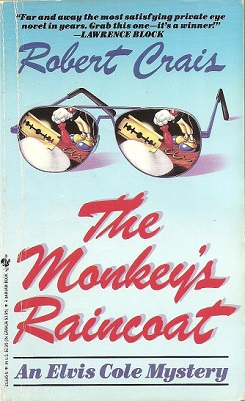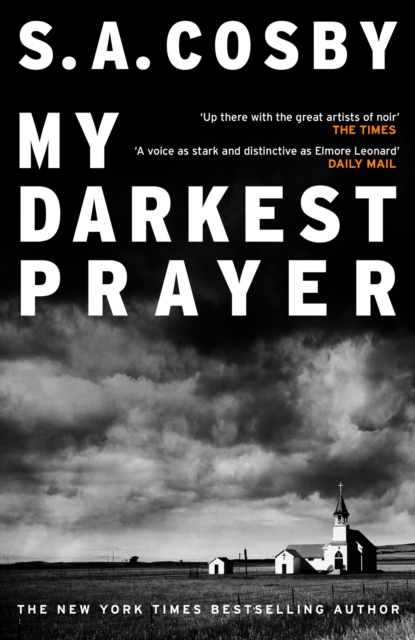 |
| Anton Graff [Public domain], via Wikimedia Commons |
Coast to Coast: Private Eyes from Sea to Shining Sea, an anthology of private eye stories (bet you couldn’t figure that out from the title) that I co-edited with Andy McAleer was released yesterday. And while I think it’s a great book with a terrific variety of writers and PI stories—and I hope you’ll all pick up a copy—that’s not exactly what I’m going to talk about here. But it is the jumping off point. And while this might be a little on the BSP side, it’s really meant to talk about the editing process for an anthology.
This is the second volume in the Coast to Coast series, so my second at bat wearing the editor’s green eyeshade.
The process is interesting, at least to me. Maybe once I’ve edited twenty books the novelty will have worn off. But right now everything about it is new and exciting. One of the most unusual aspects of the Coast to Coast editing process is that Andy and I have worked together on two volumes now, and we’ve been friends for many years, and yet we’ve never met in person. We’ve done all of our editing via email, snail mail, phone, etc… So I thought it might be fun to include Andy in this blog and get some of his thoughts on the editing process.
The first step in the process is coming up with a subject or theme for the book. The first volume was
Coast to Coast: Murder from Sea to Shining Sea, which is pretty much what the title says, murders across the country, from coast to coast.
Private Eyes is the topic for the second volume. And we’re currently thinking up something for the third, though I think we know what it’s going to be….
Next you have to figure out who would be right for the topic. And in our case, since one of the themes is “coast to coast” we have to try to find people from across the country who would be good for that topic and who could set their stories dotted across the map. So even though there might be ten people in L.A. who would be great for the subject matter, we can’t use them all. And the absolute hardest part of the process for me is not being able to use all the great writers out there and having to whittle it down. I don’t want to hurt anyone’s feelings and don’t feel bad if you haven’t been asked. There’s a lot of different criteria that goes into choosing authors and one of them with these volumes in particular is trying to get people from various parts of the country, that coast to coast thing you know. Still it pains me when I can’t ask certain people or when people ask me if they can be in it, but for one reason or another we have to say no.
Since these volumes are not done via an open submissions process, we ask people to contribute. Some say yes, others have other commitments. And you have to try again—until you get the right mix—which is fine because there’s a lot of great writers out there. But with our series, as I said, we have the added dimension of having to be spread out from coast to coast so that does make it a little more difficult. But eventually you get your batting lineup. One major hurdle crossed.
 |
| Andy McAleer |
According to Andy the hardest part of editing was: “…the fear of rejection from authors. I set my heights rather high for the authors I wanted. I wanted authors who knew the PI genre backwards and forwards and knew how to use that knowledge to tell a great story. Everyone I asked very generously agreed to contribute a story. Then I’m like, what was I worried about!”
While waiting for the stories to come in and since we’re both writers as well as editors, Andy and I are working on our own stories for the volume. We’re also in touch with the publisher and his people about cover art, contracts, and all the various other minutia that goes into getting it all together.
Andy said this about his experience writing his story for the anthology: “It was very difficult for me. In this case my story ‘King’s Quarter’ was the first piece of fiction I’d written since I’d returned home from Afghanistan three years prior. I just couldn’t create. So I boxed myself in by making promises I had to keep, having little faith I could make it happen. But like all the other contributors I made a promise to do something and to do it on time. I wasn't about to let my partners in crime—especially Paul—down. This forced me to write and complete what I started.”
As the deadline approaches the stories start to come in and we have to set about reading them. Usually a quick-ish first read just to get the gist and make sure most of the nuts and bolts are in place. Then deeper reads. And as the deadline for getting the stories in gets closer and some still haven’t come in you start panicking. So you begin to nudge people. On one of the volumes one person had to drop out, but we had enough stories to cover.
As Andy says, “Paul and I were committed to getting the manuscript into the hands of our publisher, Down & Out Books, on their schedule not ours. We already knew we had professional authors working with us, so we knew we were going to get great stories in manuscript form—and get them on time!”
Then the editing process begins in earnest, assisted by my wife Amy, who is a pretty darn good editor. As a writer, I know I don’t like it when editors change my words or voice or other things in too big a way. Or when they get captious on me. Or, when they’ve heard some “rule” from on high and now everything/everyone has to follow that rule. One of the reasons I wanted to move out of screenwriting was to have less chefs spoiling the stew, so to speak. So I have a lot of sympathy and empathy for authors and their words. And I hate to change those words ’cause I know how much I hate to be changed. I want to keep the authors’ voices and visions intact. I think that’s important. I will suggest changes if I see problems. I just don’t want to stomp on the voice of the author. And Down & Out was great in respecting our request to be able to do that.
Andy’s best advice for would-be editors: “PLAN. Respect the authors’ and publisher’s time. Paul and I were good about having a definitive game plan before we approached Down & Out with the idea of a second volume of Coast to Coast. We made sure we had realistic deadlines for the contributors and hoped they would find Coast to Coast a worthy project. After the publisher found this acceptable we approached the authors and they seemed okay with the specs. We also created story guidelines so the authors would not have to guess what we wanted. Word limit, what locations in the country were available since we didn’t want multiple stories from the same city—and of course, a private eye had to be the central figure. Last advice, once you have the authors aboard—if they’re professionals—just leave ’em alone. They’ll get the job done.”
 |
| Moi |
After we do our edit, it goes to the publisher for their edits. Then back to us. And sometimes the publisher wants changes and we try to work with them so everyone is happy. Or we or they will question some colloquialism or other thing and we’ll have to go back to the author to make sure it’s what they want to say. Eventually, the editing gets done. Then it goes back to the publisher for the final touches, putting it all together, marketing and all that good stuff until release day. And after that it’s nothing but glory, right? Right… Awards, fame, riches, groupies. Ah, the glamorous life of the writer.
Andy summed up what he liked most about working on this anthology: “The stories cover so many interesting areas of the country, so I know I had a lot of fun learning about local customs and local word usage. That’s the great thing about crime fiction—you have fun while learning. Seeing the finished project. Something that represents eighteen months of work—satisfying—but best of all is seeing your fellow authors in print, knowing that they created something original for this volume with the intent of pleasing their readers.”
And then it’s on to the next volume before we even have time to hit the Left Bank for a quick absinthe and rest on our laurels.
###
Coast to Coast: Private Eyes from Sea to Shining Sea is available at
Amazon.com and
Down & Out Books.
![]()


















